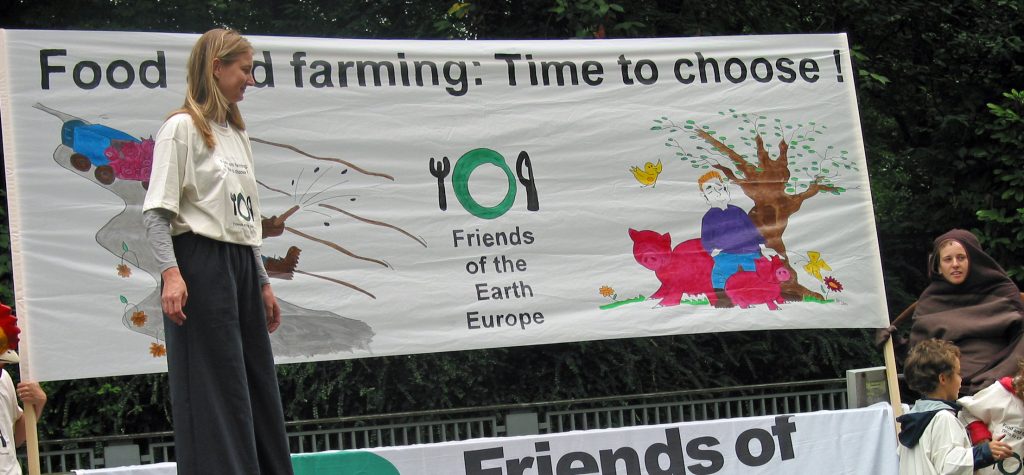Billions of euros of CAP subsidies will start flowing from Brussels to the new member states tomorrow (Sat. 16 October) without necessary environmental safeguards, a new Friends of the Earth Europe research warns.
In a report published today [1], the environmental organisation warns that despite the Fischler reforms, agricultural developments after the accession are likely to cause a great deal of social and environmental damage, partly due to flaws in the Common Agricultural Policy (CAP). The Commission will start sending direct payments to the new member states’ farmers this Saturday [2].
While some basic environmental conditions for farming were agreed in the last year’s CAP reform, the new member states will only be obliged to implement them from 2009 on [3].
The main risks connected to CAP but also to the newcomers’ entry into the single market include:
* increased use of chemical pesticides and fertilisers in fields, resulting in higher health risks, more water pollution, soil damage, and a loss of biodiversity. The use of pesticides per hectare is on average almost four times lower in the new member states than in the EU-15.
* increased transport of food and animals. In the first two months after the accession, imports of Danish pig meat to the new member states increased threefold.
closing down of small farms and local food processing enterprises leading to a rise in rural unemployment.
foreign investment into huge intensive livestock farms, such as the recently built Smithfield pig farms in Poland and German poultry farms in the Czech Republic.
On the other hand, EU membership offers the new countries distinct opportunities:
* subsidies to boost organic agriculture and to maintain extensive farming on pastures and meadows (agri-environmental programmes). Slovenia is going to triple the number of farms under agri-environmental contracts, thanks to the funds in the so-called second pillar of CAP.
* improved legislation: bans or restrictions on some hazardous pesticides, higher animal welfare standards, and legislation limiting pollution from farms, thus protecting public health.
It is now up to the new member state governments to make sure that EU membership and CAP money will provide quality food, rich biodiversity, clean rivers and rural jobs. Not all the new governments are planning to use the money in the same way. Large differences between the countries appeared during preparations of their first Rural Development Plans [4]: while the Czech Republic plans to spend 49% on agri-environmental programmes in 2004-2006, Poland or Lithuania plan only 10%.
Martin Konecny of Friends of the Earth Europe said: “The new member states must not blindly follow the old intensive agricultural model leading to food safety scandals, water pollution, dead soil, and biodiversity loss. The new states should use the opportunities to develop sustainable agricultural models rather than repeat the old mistakes. After all, what’s good for the environment is also good for food safety and food quality. That’s what the West has taken years to learn.”
Notes to editors:
[1] “EU Enlargement and Agriculture: Risks and Opportunities”. Friends of the Earth Europe, Brussels, 2004. [2] Direct payments will be disbursed to all the new member states except Slovenia and Malta where a different system of direct payments applies (starting on 16 November). Direct payments are the main type of subsidies within CAP. As a result of tough pre-accession negotiations, the new member states will now receive only 25% of the normal level of direct payments. The level is to gradually rise up to 100% in 2013. Between 2004 and 2006, the ten new member states will receive approximately 3 billion euros in direct payments – out of approximately 13 billion euros for agriculture and 46 billion of all EU payments. [3] The so-called cross-compliance obliges farmers to comply with several environmental, animal welfare and food safety standards in order to receive the full amount of direct payments. All the new member states except Slovenia and Malta will have to implement cross-compliance only when they switch to a different system of direct payments, latest by 2009. Even then, cross-compliance remains too weak to encourage more environmentally friendly farming practices. [4] Each country prepares its own Rural Development Plan financed under the so-called second pillar of CAP and has the freedom to allocate funds to a range of different measures.




